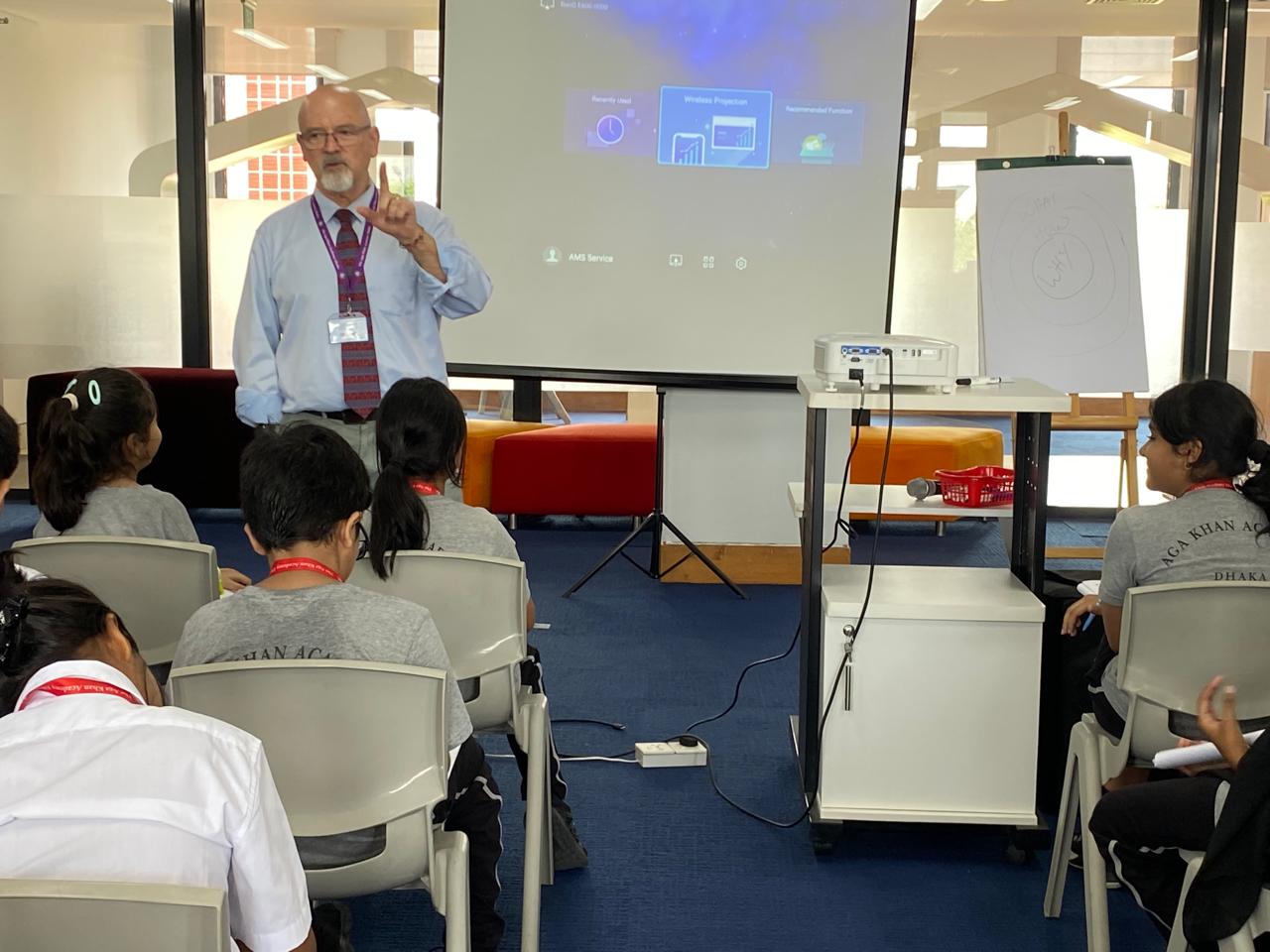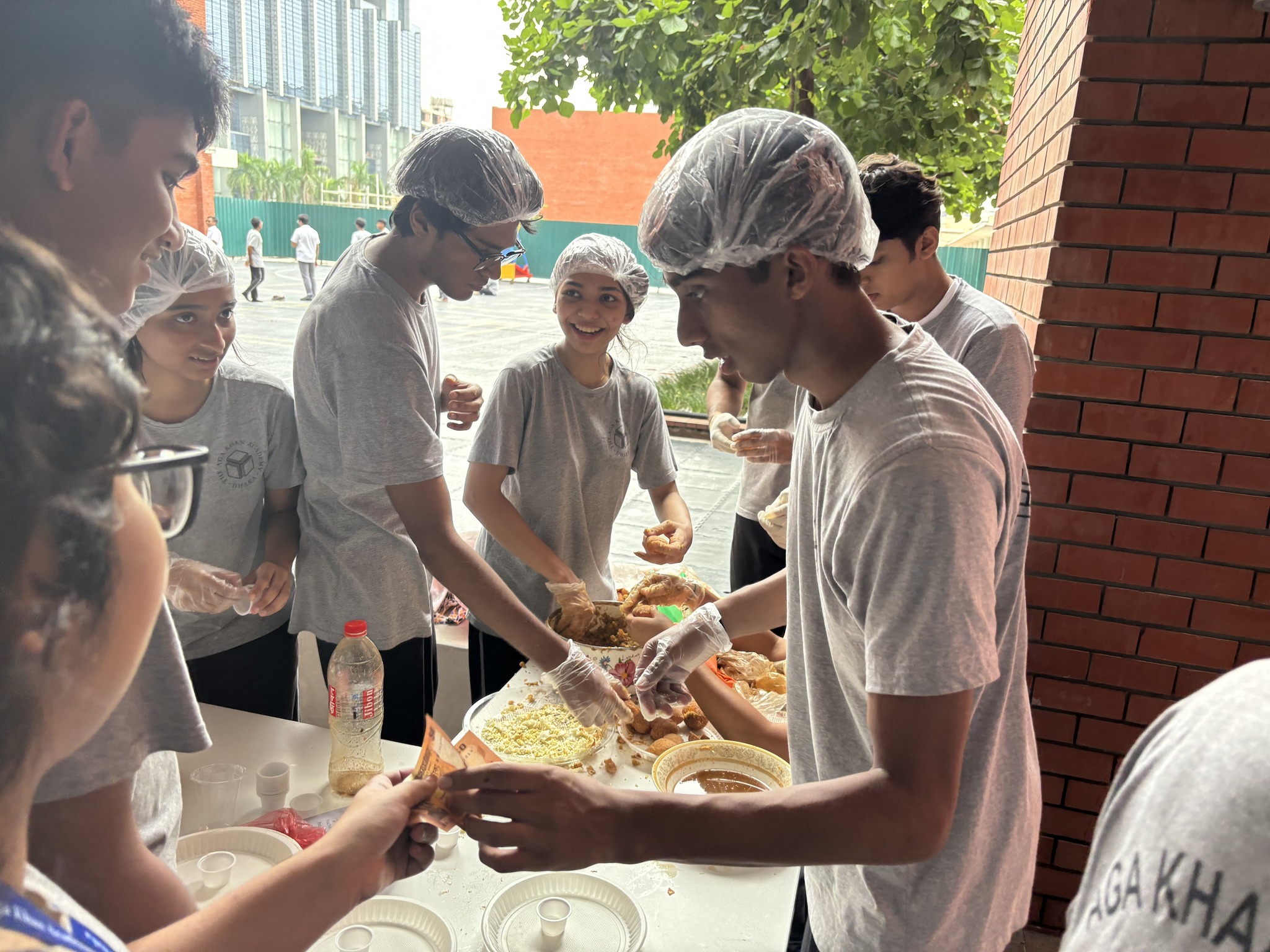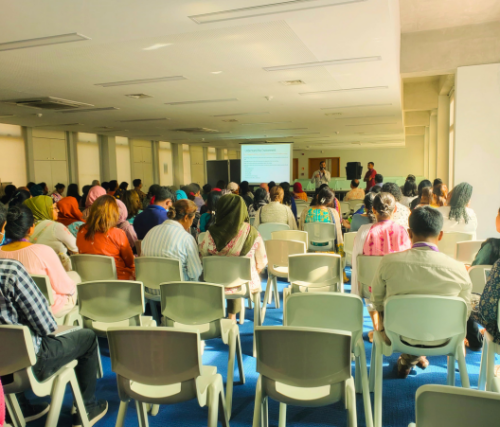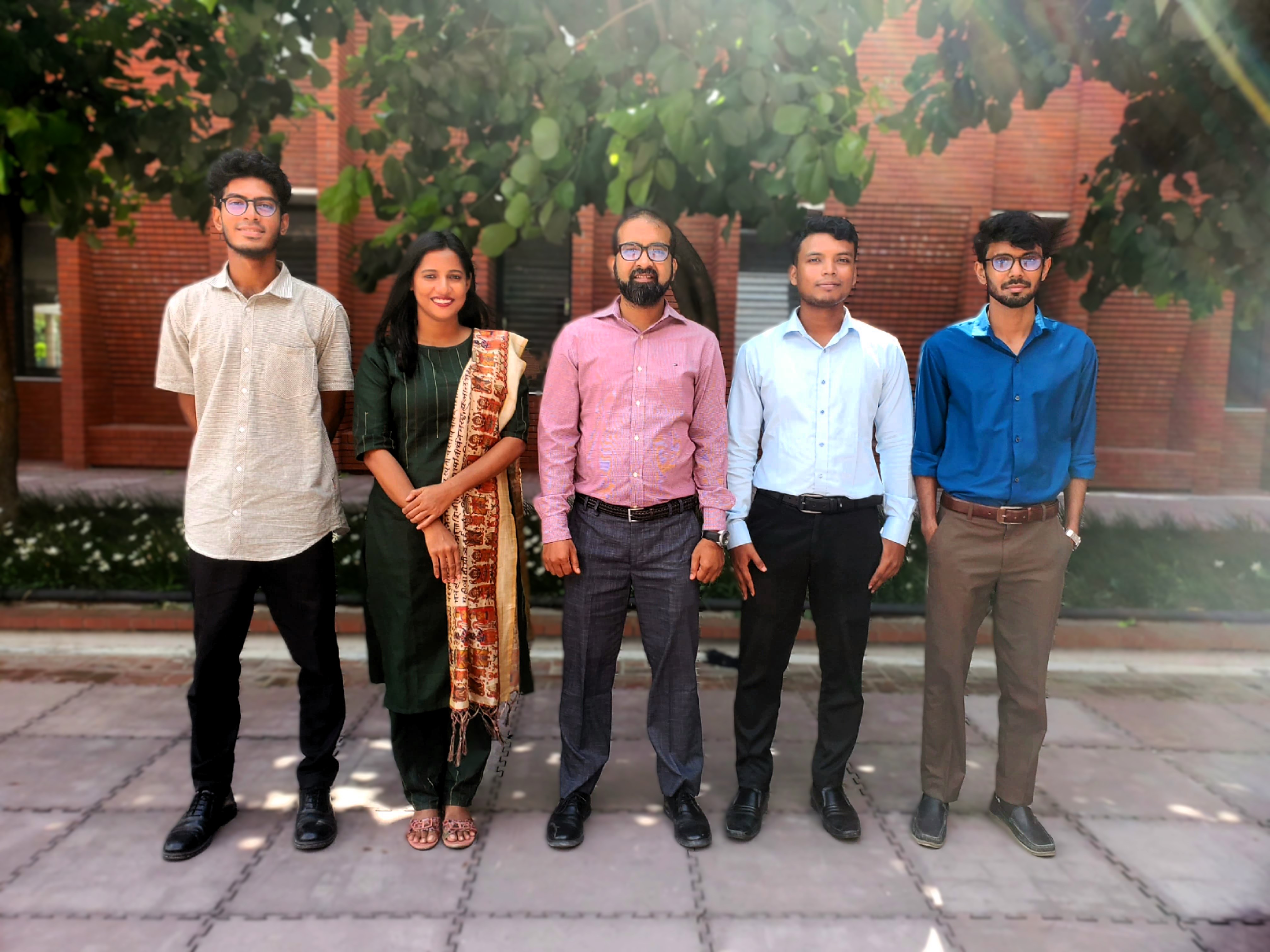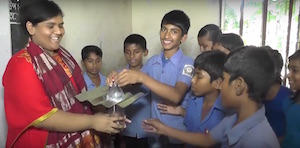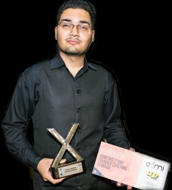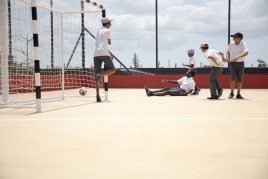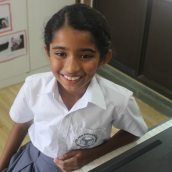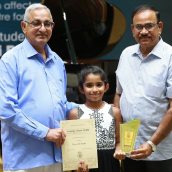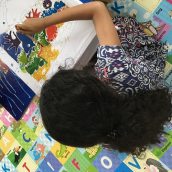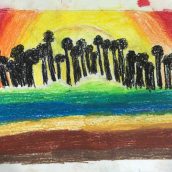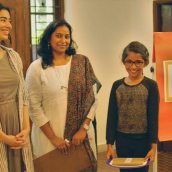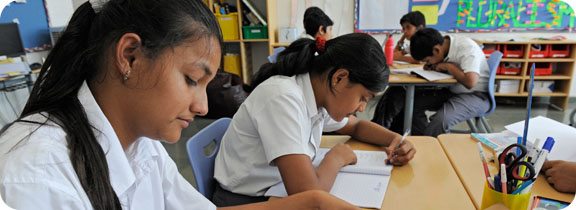
Admissions
The network of Aga Khan Academies has been established to provide exceptional students from all backgrounds with an outstanding education. Admissions are currently being accepted for the Primary Years Programme, Middle Years Programme and Diploma Programme at all Academies.
The Academy seeks students from pre-primary through higher secondary levels representing a diverse range of economic, cultural, ethnic and religious backgrounds. Students should have the ability and motivation to excel academically and should demonstrate leadership in community service and other co-curricular pursuits.
Selection is based on student merit.
The Academy endeavours to meet the demonstrated financial need of each admitted student.
Candidate characteristics
The admissions committee evaluates candidates based on a range of measures and selects those demonstrating a high level of motivation and commitment to learning, a strong sense of integrity and respect for others from diverse backgrounds.
Successful applicants typically demonstrate the following characteristics:
"The students at this institution will be distinguished not only for their academic capacity, but for their character and commitment to citizenship."
- a record of outstanding academic achievement or potential
- highly motivated and intellectually curious
- a strong sense of integrity – the capacity to judge right and wrong and to stand up for one’s principles
- a high level of social awareness, including openness and sensitivity to those of different backgrounds
- the desire to work towards, and instigate, positive change
- leadership in community service, student government and/or sporting activities
- notable accomplishments in the visual or performing arts.
Please visit the websites of the individual Academies for further information and application forms.
Nanjiba Sayara: Teaching students in Bangladesh to recycle plastic
My desire was realised through the grade 10 International Baccalaureate (IB) Middle Years Programme (MYP) personal project, a community project that focuses on service learning through practical exploration and a cycle of inquiry, action and reflection. As part of my personal project, I went to a village school in Bangladesh where I taught a group of about 20 students how to recycle plastic bottles, and the importance of such an activity. I chose to focus on this, because recycling plastic is needed to keep our environment safe and it’s a fun activity that would keep the students interested. Please click here to see a video of my experience at the village school.
I was privileged to work with those students, as they were very enthusiastic to learn and contribute. Spending one day with children from different backgrounds made me a better communicator. My parents and I have always believed that extracurricular activities are as important as academics because they contribute to being a balanced individual. I am happy to have done this activity at the village school because it made learning enjoyable and therefore memorable.
The IB MYP personal project was challenging, educational and exciting. My parents always ask me to share my happiness and knowledge with others because it might brighten up someone’s day. I believe my session at the village school accomplished this, so I wish to continue sharing my knowledge, what I have learned and will continue to learn, with my society.
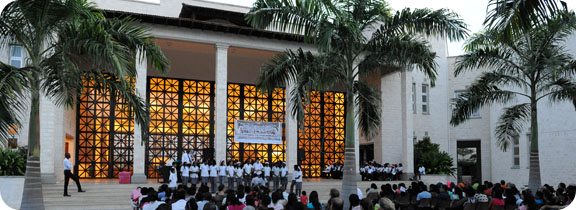
History
In 2000, His Highness the Aga Khan initiated the establishment of the Aga Khan Academies, an integrated network of schools dedicated to expanding access to the highest standard of education.
The Aga Khan Academies is a part of the Aga Khan Schools, an agency of the Aga Khan Development Network (AKDN), which is chaired by His Highness the Aga Khan. The AKDN has a long history of involvement in education in countries of the developing world, with the first schools having been founded in 1905 in Mundra (India), Zanzibar (Tanzania) and Gwadar (Pakistan). Currently, the Aga Khan Schools operate 200 schools, eight hostels and more than 100 non-formal educational programme centres ranging from early childhood through to post-graduate education.
Establishment of the academies
In 2003, the first Aga Khan Academy opened in Kenya on an 18-acre site in the Kizingo area of Mombasa. The Aga Khan Academy Mombasa has already established a highly successful track record, with its students placing among the top tier worldwide in academic performance.
The Aga Khan Academy Hyderabad in India is the second to be established and opened with its first intake of students in August 2011. As with all the Aga Khan Academies, the Academy in Hyderabad selects students of all socio-economic backgrounds who show promise in academic and other areas, and who demonstrate good character and serious intent.
The Aga Khan Academy Maputo in Mozambique opened in August 2013. In August 2022, the Aga Khan Academy Dhaka in Bangladesh opened.
Future academies
The other Academies are at different stages in the planning and development process.
Kashyap Gohel (Class of 2011): Providing solutions to improve the world
Kashyap Gohel has been pursuing a Bachelor of Architecture programme at the Jomo Kenyatta University of Agriculture and Technology (JKUAT) in Nairobi, Kenya since graduating from the Aga Khan Academy Mombasa in 2011. "My top marks at the Aga Khan Academy earned me a government scholarship which is about 85% of the annual fees for my architecture course of six years," says Kashyap very proudly. He expects to graduate from JKUAT in June 2017.
"I think the main values the Academy instilled in me were positive attitude, time management, assertiveness, competitive spirit and self-confidence. These are values that I apply on a day-to-day basis to form the foundation of a successful career in art, product design and architecture," Kashyap says confidently. He also adds that the confidence that his skill set gives him takes him further than most in trying challenging and new projects in his field. With this experience in mind he says, "I am sure I shall be quite a pioneer in creating world-changing ideas."
Kashyap believes the coursework at his university and his time management are going smoothly due to the intense training at the Aga Khan Academy. "Coming from the Academy, I believe it set me a level ahead of others, enabling me to go further than my fellow students." He also values the International Baccalaureate curriculum. "It is the only system that I know of that makes it possible for one to develop holistically. One does not just learn academics, but also extracurricular activities, leadership skills, developing talents and solving community problems," he says emphatically.
Since graduating from the Aga Khan Academy, Kashyap has participated in many major events and activities that have brought him recognition and accolades. He was a winner of the Perstorp Open Innovation Challenge 2016 in Sweden which involved submitting ideas on making, repairing and remolding furniture into new shapes and designs rather than disposing of used or broken pieces in landfills. Kashyap has also won the Disruption by Design Award for architectural design in 2015. Other accomplishments include being awarded a tender to create a 14-foot-tall carving at Jomo Kenyatta International Airport in Nairobi, Kenya in 2014 and winning the first round of the Thought for Food Challenge 2013 – an annual competition that challenges university students to develop an innovative solution to improve food security. He also won an international graphic design contest for an Irish boat-making company and has displayed his artwork at Diani Beach Art gallery, Tazama Art Gallery and Kenya Art Fair.
Kashyap was also nominated and sponsored to attend the One Young World conferences in Pittsburgh, USA in 2012, and in Johannesburg, South Africa in 2013. These summits gather the brightest young leaders from around the world, empowering them to make lasting connections and develop solutions to some of the world's most pressing issues.
Kashyap is particularly proud of his first community service project, called Project Desert Farms. He designed this as an architectural solution to help communities on the coast to filter ocean water, obtain housing and food, and reduce deforestation. This project was selected as a finalist project from a worldwide participation of 140 teams, and the only one in Africa that made it to the Thought for Food Global Summit in Berlin, Germany.
While at the Aga Khan Academy Mombasa and after graduating in 2011, Kashyap has been actively involved in many projects and volunteer activities and has also worked for the Academy and other companies in his field. In 2011 he worked with planning and construction management at the Aga Khan Academy. He also volunteered there as a theatre teacher for years 7–10 in 2012 and was involved in the design of two of the Academy’s residential blocks.
Kashyap's most unforgettable experience at the Academy was being a dorm captain in the residential programme. "One of the things I miss about the Academy is the organisation…[and the] efficient order in the way it operates," he comments. Another thing he misses about the Academy is the facilities. "It’s only after leaving the Academy that you appreciate the constant high speed Wi-Fi, adequate number of desks and chairs for students, high-class sports facilities and equipment, and most of all the great ocean climate and friendly people. As they say, nothing beats home," Kashyap reminisces nostalgically.
Areesh Rehmani: Exploring diverse cultures through languages and science
Thriving on the principles of linguistic diversity, pluralism and academic excellence, the Aga Khan Academy Maputo is the third Academy of the 18 Academies planned worldwide. Its rich atmosphere not only nourishes students to be active learners, but also encourages young minds on how to maintain a balance between sports, academics and cultural activities.
Areesh Rehmani, a grade 6 student at the Academy in Maputo, is one such determined and dedicated student. An active learner and passionate sportsperson, he is significantly involved with academic, leadership and sports activities. Not only is Areesh curious to learn about scientific innovations and technological growth, he is also enthusiastic to learn new languages and gain knowledge about diverse cultures.
One of the languages Areesh is learning is Portuguese. He proudly shares, “Learning Portuguese has had a very good impact on my life. I am now able to communicate well and when visitors come to my school I can converse in both languages (English and Portuguese).” Speaking both languages not only helps Areesh communicate with the local community, but also allows him to deepen his knowledge and learn from members of other communities as the Academy receives many visitors from Britain, Spain, Portugal and other countries.
Areesh also enjoys mathematics and science lessons. He explains, “Learning about new things has made a great difference. It is wonderful that now I am learning things that previously I didn’t know.” He speaks fondly about a science field trip he attended. The field trip was focused on educating the students about the cell theory in biology. He says, “We saw real cells. These living cells were put into slides and after observing them we had to draw them.” Areesh particularly loved this innovative way of learning. He continues, “Doing this activity, I realised how I enjoy drawing too. And since, this was something I had never done before or seen – it was really fascinating.”
On asking him how he likes the Aga Khan Academy Maputo campus, he says, “I really like the campus – especially the library. It’s such a colorful space because it has so many books. I also enjoy the IT room because we can use computers to learn. The science lab is also my favourite as here we can do many experiments, and I find science extremely engaging.” Some experiments Areesh and his classmates have conducted include researching about different organisms, using microscopes, and experiments to solve problems about mass and time.
He believes that classroom lessons such as these have also allowed him to become a better team player. He says, “I would define myself as a sportsman. I feel I am an active person. I enjoy sports activities like cycling, playing football, tennis and others. I’ve also played many football matches.” Areesh believes that sports make him more focused, and he is also happy when he is able to maintain a balance between sports and academics. Areesh has also participated in an inter-school football tournament where he was awarded the Man of the Match Award. Areesh says, “I was speechless, but also very grateful for such a wonderful opportunity.” Areesh’s favorite football player is Cristiano Ronaldo because he is respectful and honest.
In the future, Areesh hopes to visit the other Academies and learn more about other cultures and communities. Although learning about diverse cultures and languages excite him and are his passions, he believes that his career goals are more science and sports inclined. He aspires to be either a software engineer or a footballer. He says how earlier he wished to be an astronaut, but has realised how much he enjoys building new models. One day, Areesh hopes to use technology to create a positive impact in society.
Areesh believes the Academy’s learner profile has helped him define these ambitions and has improved him as a person. He says, “The learner profile helps me, and I learn more when I have the learner profile.” He affirms that adopting the qualities of the learner profile allows him to be a better student and a helpful person. The profile teaches him how to be more collaborative, and he is always ready to help any of his classmates with difficulties in academics or in other areas. Areesh explains, “In MYP (Middle Years Program) we have a whole group and we stay together. We have a united class and we are all very helpful and kind towards each other.” He believes, “Unity is the first step to success. Nothing can be done without unity. We all help each other and we grow together.”
By Khushboo Shah
